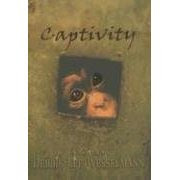 Dana Armstrong is the director of the South Carolina Primate Project, where captive chimps are rescued and given a chance at a more natural life, albeit still in captivity. At the beginning of the book the chimps held in solitary, because they do not mix well with other chimps, have escaped. The police have to be called and the public’s reaction to the escape put the future of Dana’s organisation in jeopardy. Did the chimps breakout unaided or were they released by someone who wants to bring down Dana and the SCPP?
Dana Armstrong is the director of the South Carolina Primate Project, where captive chimps are rescued and given a chance at a more natural life, albeit still in captivity. At the beginning of the book the chimps held in solitary, because they do not mix well with other chimps, have escaped. The police have to be called and the public’s reaction to the escape put the future of Dana’s organisation in jeopardy. Did the chimps breakout unaided or were they released by someone who wants to bring down Dana and the SCPP?Dana has a close affinity with chimps as she was raised with a chimp sister, called Annie, who was used for ‘humane’ scientific experimentation. Annie was raised as a human child alongside Dana and her brother Zack, while their father taught Annie sign language and compared her reactions to his own children. Years later grainy videotapes of the studies he made are still shown to the scientific community. Scientists have now decided that this type of research was flawed and inhumane, a view which has profoundly influenced Dana’s work. She tries to rehabilitate the chimps that come to the SCPP, teaching them how to be chimps and creating habitats for them to socialize in. All of the chimps have been emotionally damaged by humans and are now unable to cope in the real wild, but Dana hopes to be able to give them freedom in a contained version of the wild.
This book would be wonderful for anyone scared away from novels about science by Micheal Crichton’s knowledgeable displays of science theory in ‘Jurassic Park’. ‘Captivity’ is written in a natural, easy to follow style that will enable anyone to enjoy Dana’s personal journey and grasp the theoretical ideas of anthropology that underpin her work. ‘Captivity’ actually reminded me of Jodi Piccoult’s books, where complex, moral issues are clothed in accessible action and emotion. The tone of the writing was also similar, Debbie Lee Wesselman writes in a calm, logical way that allows her characters to express their ideas but there is also warmth to her writing, expressed by her perceptive descriptions of nature. Where other writers might have amped up the tension in the book through short sentences and melodramatic words Wesselman keeps the rhythm of her writing constant, letting the dramatic action slowly build. If like me, you enjoy Piccoult but prefer to read animals rather than children ‘Captivity’ might be the book you’ve been dreaming of.